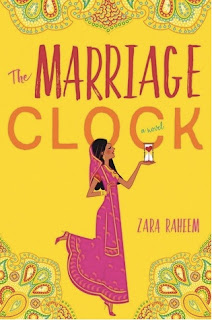Leila Abid is just 26-years-old and feels the inexorable ticking of the “marriage clock”—not because of her age, not because she lacks a dating life, but because her traditional South Asian Muslim parents and the larger community expect her to be married now. Leila escaped the strict rules of dating while she was off at college, but her current relationships are under close scrutiny now that she is living at home again, and now that her mother thinks that she needs to take this matter in hand.
While Leila’s mother applies the pressure to find her mate, Leila negotiates for a little breathing room to accomplish this on her own. With the help of her friend and college roommate Annie, she composes a bucket list of all the qualities she wants in the “right guy.” Over seven paper napkins, Annie takes notes on Leila’s forty-six ideas of perfection, heavily influenced by the heroes of Bollywood romances.
With a three-month deadline, the dating begins. Leila works through blind dates, online dates, matchmaking dates, phone dates, and every other permutation of the dating scene. Most of these meetings end in hilariously awful ways, with Leila trying to explain to her expectant mother why these relationships just don’t stand a chance.
This debut novel might easily be written off as "chick lit," but behind the humor, the angst, the determined search for a husband, is a pretty powerful look at the life of a first-generation Indian Muslim woman whose family's expectations for her are marriage--first, last, and everything. While reading this, I happened on an NPR report about marriages in India where arranged marriages still account for four out of five unions and where there are dire consequences for choosing to marry outside your religion or caste.
Author Zara Raheem does a fine job exploring the various sides of freedom of choice and arranged marriages, the generation gap, and the cultural divide of immigrant families. Her characters are interesting and three-dimensional personalities. Leila’s friend Annie is good at keeping Leila grounded, and their conversations are often both meaningful and funny. Even Leila’s mother, who seems so overbearing, is more realistic than caricatured. Raheem provides a surprising conclusion in this eye-opening book for "non-desi" readers, which would be excellent material for discussion groups.
Published July 23 by William Morrow Paperbacks
(Advance copies from NetGalley and Edelweiss)
Reviews from the sunny side of the street! Positive reviews of upcoming books, mostly fiction and some non-fiction. View more at my Instagram page @leslie_stitches
Wednesday, July 17, 2019
Subscribe to:
Posts (Atom)
Veil of Doubt by Sharon Virts
A story of a serial killing? Not my thing! But I chose to give a new piece of historical fiction a try, and I discovered a fascinating co...

-
A story of a serial killing? Not my thing! But I chose to give a new piece of historical fiction a try, and I discovered a fascinating co...
-
The lonely stretches of marshland on England’s coast in county Norfolk are home to forensic archeologist Ruth Galloway, who first appeared i...
-
It's an achievement to come up with something new and fresh in a historical fiction genre that is bursting at the seams (specifically,...



